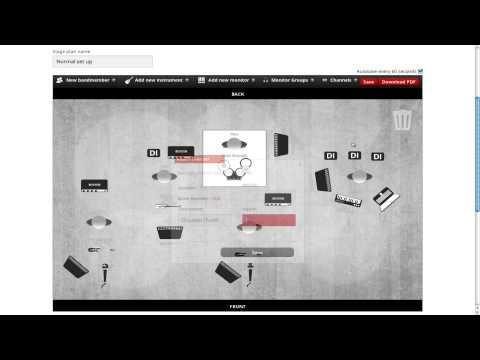

#Stage plot pro trial free
In 3 randomized clinical trials (RCTs) comparing the efficacy of preoperative with postoperative 5-fluorouracil (5-FU) or capecitabine-based CRT, 10 - 13 preoperative CRT significantly improved the prevalence of locoregional recurrence free survival 10, 11 or disease-free survival (DFS) 12 with lower treatment-related toxic effects for patients with locally advanced rectal cancer. 3, 4 In the last 2 decades, various preoperative RT or concurrent CRT regimens have been developed to optimize the sequence of multidisciplinary treatment and determine the most appropriate scheduling of RT and CRT. Historically, a combination of postoperative fluorouracil-based chemoradiotherapy (CRT) and systemic therapy has reduced the recurrence risk and improved survival for patients with locally advanced rectal cancer compared with postoperative radiotherapy (RT) alone or surgical treatment alone. 2 Rectal cancer accounts for nearly one-third of colorectal cancer cases. 1 In China, the estimated number new cases of rectal cancer diagnosed each year is 376 300.
#Stage plot pro trial registration
Trial Registration Identifier: NCT00714077Ĭolorectal cancer is the third most common cancer and the third leading cause of cancer-related death in the US. This finding highlights the basic role of postoperative capecitabine with RT for patients with locally advanced rectal cancer. More grade 3 and 4 acute toxic effects were observed in the capecitabine and oxaliplatin with RT group than in the capecitabine with RT group (114 patients vs 84 patients P = .01).Ĭonclusions and Relevance This randomized clinical trial found that addition of oxaliplatin to capecitabine-based postoperative CRT did not improve the efficacy of treatment but increased the risk of severe acute toxic effects. Three-year DFS was 76.3% for the capecitabine with RT group and 74.1% for the capecitabine and oxaliplatin with RT group, and 5-year DFS was 72.0% for the capecitabine with RT group and 71.1% for the capecitabine and oxaliplatin with RT group (hazard ratio, 1.07 95% CI, 0.79-1.44 P = .68). Most patients had stage III disease (574 patients ). Median (IQR) follow-up was 68 (45-96) months. Results A total of 589 patients (median age, 55 years 375 men and 214 women) were enrolled, including 294 patients randomized to the capecitabine with RT group and 295 patients randomized to the capecitabine and oxaliplatin with RT group. Main Outcomes and Measures The primary end point was 3-year disease-free survival (DFS). Patients in both groups received adjuvant chemotherapy (capecitabine or fluorouracil and oxaliplatin) after CRT. The capecitabine and oxaliplatin with RT group received identical postoperative RT to that in the capecitabine with RT group combined with capecitabine (1300 mg/m 2) on days 1 to 14 and 22 to 35 and a 2-hour infusion of oxaliplatin (60 mg/m 2) on weeks 1, 2, 4, and 5. In the capecitabine with RT group, concurrent chemotherapy included 2 cycles of capecitabine (1600 mg/m 2) on days 1 to 14 and 22 to 35. Interventions RT comprised 45 to 50 Gy in 25 fractions of 1.8 to 2.0 Gy over 5 weeks. Analysis was conducted from December 31, 2019, to March 15, 2020.
#Stage plot pro trial plus
Patients with pathologically confirmed stage II and III rectal cancer were randomized (1:1) to receive concurrent CRT with capecitabine or capecitabine plus oxaliplatin. Objective To explore the efficacy and toxic effects of oxaliplatin combined with postoperative concurrent capecitabine and radiotherapy (RT) for pathological stage II and III rectal cancer.ĭesign, Setting, and Participants This multicenter randomized clinical trial enrolled patients from 7 centers in China between April 1, 2008, and December 30, 2015. Addition of oxaliplatin to 5-FU or capecitabine elicited similar outcomes but with significantly increased toxic effects however, there is a need for randomized clinical trials comparing 2 CRT regimens for patients receiving CRT in the adjuvant setting. Importance Several studies have explored the efficacy and toxic effects of concurrent 5-fluorouracil (5-FU)– or capecitabine-based chemoradiotherapy (CRT) with or without oxaliplatin in the neoadjuvant setting. Shared Decision Making and Communication.Scientific Discovery and the Future of Medicine.Health Care Economics, Insurance, Payment.



 0 kommentar(er)
0 kommentar(er)
